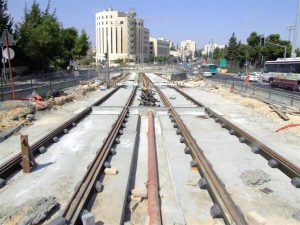Water can start wars, but it can also be a bridge to peace. And as a Middle East environment news blog, Green Prophet thinks “green” solutions – be it water, clean energy, clean air – can stimulate and lubricate peace. That’s why we engaged in a series of interviews with Israeli water experts in partnership with the Strategic Foresight Group. There’s been a lot of talk about how Israel manages its water, but what solutions do its experts, policy makers and business people see as viable for water security in the Middle East?
We launched into a deep investigation and found the influentials in the country’s water industry. (Scroll down for the complete list of interviews.) Today’s interview with the desk of the Ministry of Environmental Protection. We hope that loyal readers finds this series useful, and that policy makers, and journalists will have new channels of experts to approach.
Here’s our interview with the Ministry:
Q1. Turkey and Israel have had talks about freshwater supply and purchase in the past. The Turkish government has been positive in its overall response so far but there is some opposition to this in the Turkish political spectrum. If the Turkish government were to agree to supply 1 BCM of freshwater to Israel, is there a possibility that Israel will agree in return to share this water with the Palestinian Authority (PA) and Jordan?
A1. Nowadays, Israel is the major supplier of water to the Palestinians and it supplies water to Jordan according to the peace agreement between the countries. If this project of getting some water from Turkey will be feasible, sharing it with the Palestinian Authority (PA) and Jordan is more than an option and Israel will consider it as such.
Q2. Israel is counting on desalination as a major source of its future water supply. However, there are limits to the growth of Israel’s water supply based on marginal water alone. What are the other ‘regional’ solutions that Israel can examine in terms of water cooperation with other countries?
A2. The water scarcity is going to be harder in the whole region and desalination is the solution for “new” water. Furthermore, reuse of water and especially use of treated effluent for agriculture will gain more fresh water to address the needs of the increasing population in the Mediterranean.
Q3. Lebanon’s Litani River has a particularly high quality of water, with a very low quantity of chlorates and nitrates present. Water cooperation with Lebanon would therefore serve Israeli interests but in order for this to happen, political cooperation between these two parties is required; in addition Israel-Lebanon relations are inter-linked with the Israel-Palestine conflict. Is it worth it for Israel to find political cooperation with Lebanon in order to secure its water situation or is this not a practical option?
A3. Indeed, the Litani River has good water quality and the use of its water will contribute a lot to the scarcity in the region. Unfortunately, nowadays, the conflict keeps this solution far from reality.
Q4. Technical reports suggest that over-pumping is leading to the depletion of groundwater aquifers in the West Bank, both in terms of water levels as well as water quality. This could cause water shortages in the short-run and devastation of the eco-system in the long-run. What can be done to preserve these aquifers?
A4. There are three major things that need to be done in order to save the water quality in the aquifers:
1. Pollution from wastewater that is flowing into the environment needs to be stopped and wastewater treatment plants need to be built as soon as possible.
2. A control of the over-pumping is a major step in order to save the quality and quantity of the aquifers.
3. The use of treated effluents for agriculture will reduce the need for over-pumping and will keep the aquifers in good quality.
Q5. Israel has experienced a severe drought period in the recent past. With environmental neglect and the effects of climate change, this can be a frequent and imminent risk in the future. What can be done to minimize the impact of such a danger in terms of national measures as well as well as regional cooperation?
A5. A combination of steps in the region will reduce the dangers and risks to the environment from droughts. Increasing the ability to produce “new” water from desalination is one step. Reusing of treated wastewater for agriculture is another one. Education and control on the daily consumption of the people will support and reduce the need for water by 10-15% on an annual basis.
Cooperation between the countries can also contribute a lot and can help supply an adequate quantity and good quality of water to the entire population in the region.
Found this interview useful? Read the rest of series below.
The Israeli experts water series:
1. All the Water in Israel: Interviews with Government, Analysts and Researchers
2. Interview with Israel’s past water commissioner, Shimon Tal
3. Gidon Bromberg on Water Security and Sustainability in the Middle East
4. Read our interview with Israel’s Water Commission
5. Interview with Eli Ronen, chairman of Mekorot
6. Interview with Ranaan Borel, water consultant and activist
7. Interview with the Mayor of Ashkelon, Benny Vaknin, a peacebuilder through water and the environment





6 thoughts on “Water Security in the Middle East: from the Desk of Israel's Ministry of Environmental Protection”
Comments are closed.